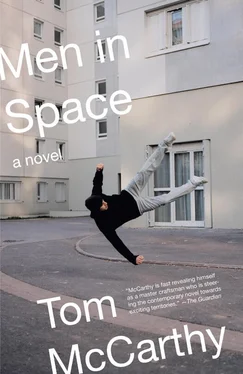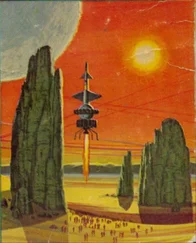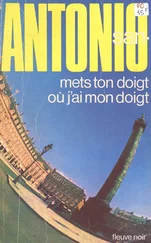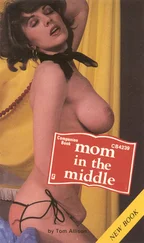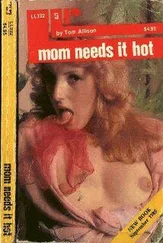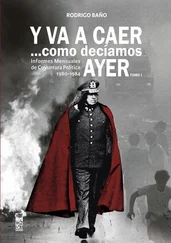Another bridge, then it’s town proper, streets opening and closing to them as they pass, long rows of balconies and arms with hooks on at the top. Fire escapes spiral, DNA-like, from the roofs of schools and office buildings. Cranes tower up skeletal above them, their orange latticework blackening and flashing as they rotate through the sun, gramophone arms swinging into position above the grooved earth down below. There’s construction going on everywhere: large complexes being built among old streets; new, fresher rows of houses with those same arm-and-hook devices jutting from the top of their façades, wheels with crosses through them hanging from the hooks threaded with ropes that are winching sinks and bathtubs to the top floors. They pass more bridges. Each one attracts a congregation of wires: wires from street lights, telephones and tramlines criss-crossing, converging into clusters and then splitting as they rise to buildings’ corners, moor themselves to posts. Beside each bridge, control towers: ominous, squat buildings often standing on one stork-leg in the canal itself, their inner machinations hidden by reflective windows. Heidi’s purple glasses. There’s a bridge opening up right now ahead of them: looks like an Alexander Calder mobile, black blocks and red circles waltzing round each other as the arms pull the road up and pigeons spill from the green metal underside. A barge is ploughing through it, heading straight for them. Swans are running down the canal to escape it, treading on the water as they flap their wings. Jesus could but Joost couldn’t. They run for ages, stamping with their webbed feet, honking. When they finally get airborne they pick up outriders, seagulls and ducks flying around them like small press and military aeroplanes shadowing NASA shuttles as they glide in towards runways. Ruimtevaart . It’s always held a fascination for Nick, with the moon landing and his birth being the same year, same month, same week. He made Roger play that footage endlessly. As a child, he’d get up early to watch every shuttle launch; he was still doing it as a teenager when the Enterprise or Discovery or whatever it was called exploded, and stared in an almost sacred kind of horror at the two long fingers snaking out of cloud …
“We must go to the side.” Han pushes the motor from him like a tiller to send them towards the canal wall. They haven’t spoken up to now, just shared a kind of childlike satisfaction in the passing landscape. And besides, they’d have to shout above the motor’s noise — although that isn’t half as loud as this great black scow passing by them now, the Apollonia II . It’s got funnels billowing black smoke out and a car, a sleek BMW, parked on its deck beside the driver’s cabin. Its engines make the water bubble and seethe like some volcanic swamp; waves run at them from its hull, turning their dinghy into a bucking bronco for thirty-odd seconds. With the water chopped up like this, Nick can see its colour where the sun shines through its peaks: a kind of muddy, sewage brown. A wave breaks on the bow, jumps up and smacks across his cheek as Han sends them off onwards again. Droplets . There’s a weeping willow hanging silvery over the far bank, and two guys sitting beneath it, heads down, drawing something on their forearms or … oh no, they’re fixing: junkies, fixing right there in the street …
“Amsterdam,” Han shouts to him, eyebrows raised. Nick raises his eyebrows too. Nothing to say. Some people fall. The figures dwindle and are replaced by a small factory-like building with a strange metal dome on its roof from which a green tube curls; looks like Max Ernst’s war elephant. That painting has a scrap of burning fuselage falling from the sky. It was the Challenger . They’ve passed the Marnixstraat now, and are in the Jordaan. One houseboat’s got a silver moon floating above its porch, a half-moon helium-filled balloon. They turn into the Keisergracht and glide past large, grand rooms with stargazer lilies erupting out of vases set on polished tables. Tourists make their way past these towards Anne Frank’s house, further up beside the Rosengracht. Imagine tiptoeing round secret rooms behind fake walls: like occupying a whole other dimension. How strange Han’s got that painting. And Anton paying Maňásek so much to do it. Who could it have been who called the other day? It sounded so like Anton, but it wasn’t him. It was a hanging-up noise, not a being-cut-off one. Should he stay with Lucy or Sasha? If he moves on Lucy and she doesn’t want to get it on it’ll be tricky working with her afterwards. Even if she does …
“Love Boat.” Han swings them to the side again.
“The programme?” Didn’t he have some conversation about this recently? I gape in sympathy …
“No. This boat coming.” It’s a wide, flat bateau mouche with Lover’s Rondvaart written on the side, hearts swimming round the letters. Should be Lovers’ , not Lover’s . Solitary people, jerking off. That spermy stuff that Maňásek cooked up and mixed, the gelatin and whiting. What is it the girl says on that song Sasha’s always playing — the Sonic Youth girl, Kim Something? The human bond, the goo . Heidi’s dad making his pile from sticking guidance systems onto rocket bombs. Imagine one of those coming at you: must look just like an aeroplane at first, all glinting in the sky, but then it’s falling, whistling, sleek death wrapped in metal … The bateau mouche glides by them and they start up again, pass another bridge, turn a corner and arrive in the big pool in front of Centraal Station. The station’s red-brick; there’s a clock above the entrance with golden strips on its face to mark out each hour: same colour as the sheets Maňásek was blowing round the atelier and then pasting to the wood around the saint’s head. To the left of the clock there’s a wind gauge, one hand swinging gently round the four coordinates of a circle while a weenie-cap contraption spins on top. Steps drop down from the station’s outer concourse towards jetties on which signs announce more Rondvaart s. Higher up the hotels scream their names out, their neon lettering jostling for space with that of brewers and travel agents: HOTEL IBIS, THOMAS COOK, VICTORIA HOTEL, HEINEKEN, OIBIBIO, BARBIZON PALACE. JESUS ROEPT U — JESUS LOVES YOU …
“The ships are on the other side,” Han shouts to him, squinting against the sunlight.
“These tourist boats, you mean?”
“No, the great ones. The old ones. What I’m making the posters for. They’re on the far side of the station, in the harbour.” They’re entering a narrow tunnel, heading away from the station into the Red Light District. The tunnel’s long and dark; Han’s present to him now as just a voice. “It’s a large competition. There will be celebrations in the next few days. You should go watch.”
“I will.”
They nose out of the tunnel into a very narrow canal from both sides of which old buildings rise straight up; there’s no bank or footpath. The sun’s straight ahead of them, directly behind the top of the Oude Kerk, which breaks it up and amplifies it till it’s blindingly intense: they’re bathed in it, wrapped up; it seems to Nick that they’re not sitting on the water’s surface any more but are rising, or maybe falling, through pure light.
* * * * *
They pick him up right by the Summer Palace. In the Merc there’s Milachkov, who’s driving; then Ilievski, in the front-passenger seat; then, in the back, Koulin and Janachkov. Jana gets out and opens the door for Anton, lets him enter first and then slides in again, sandwiching him between himself and Koulin.
“Hi guys.” Anton wriggles his hips into the leather, then, bending forwards to direct the question at Ilievski, asks: “Aren’t you worried about tails?”
Читать дальше
